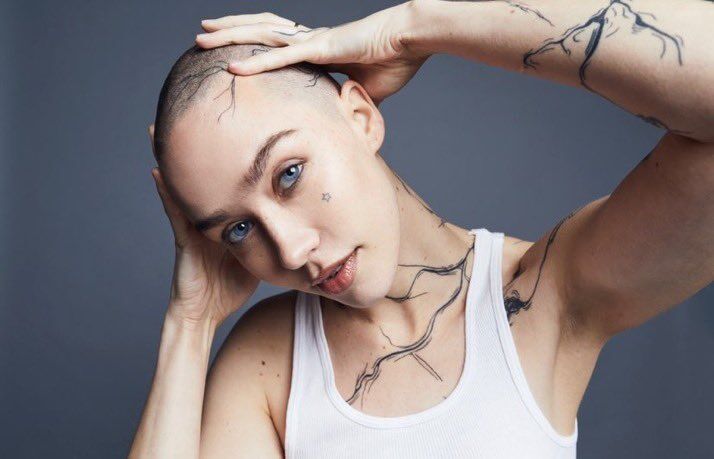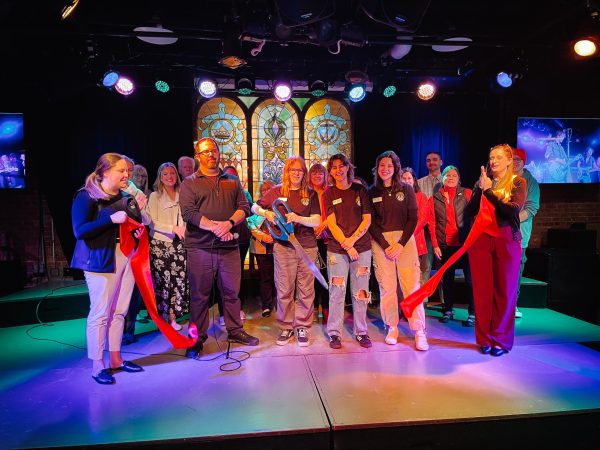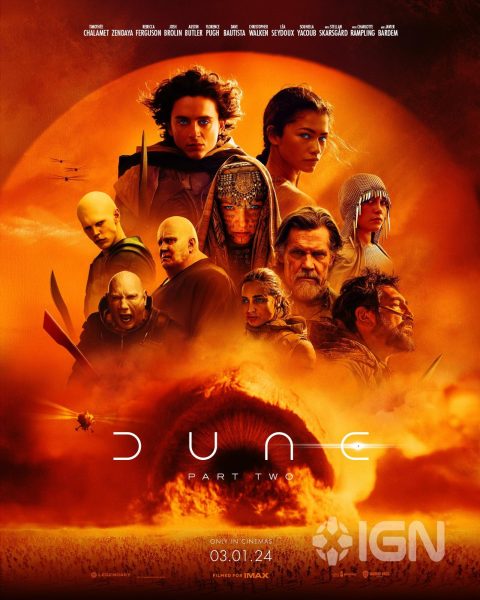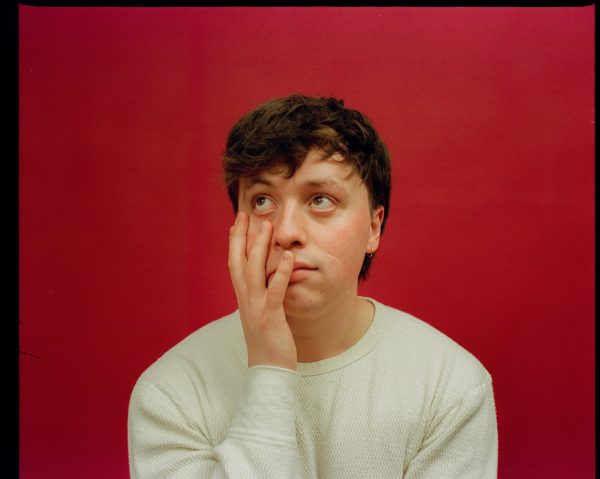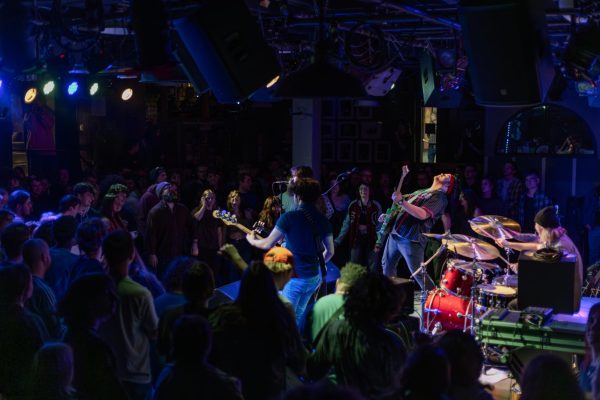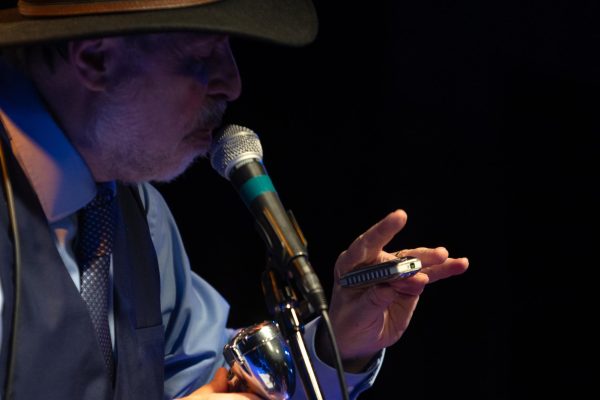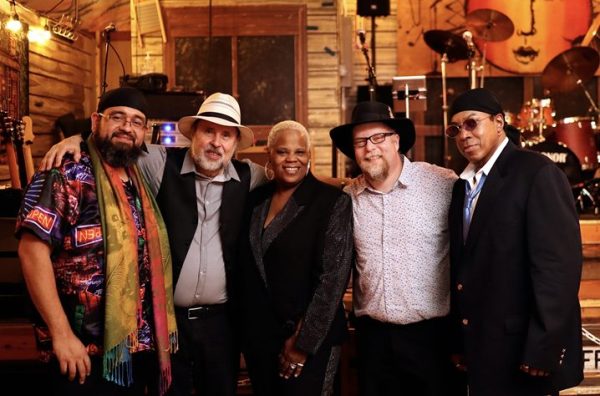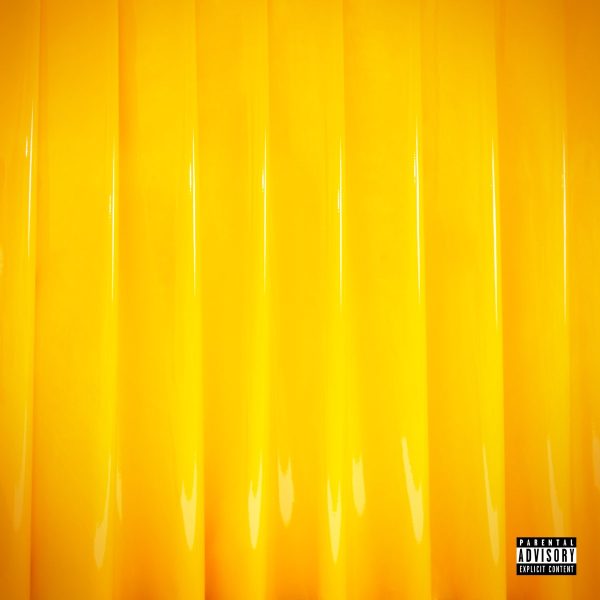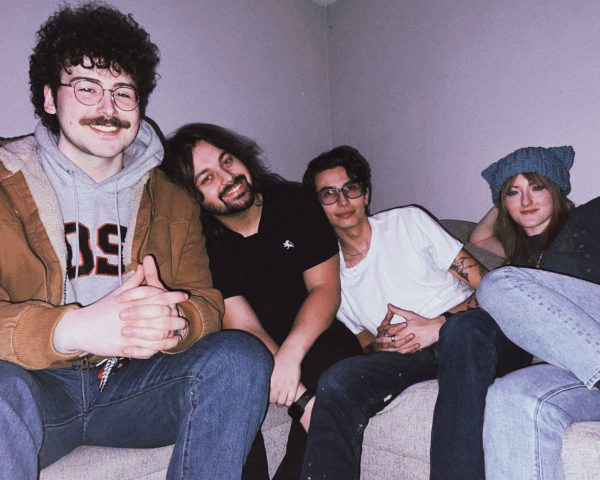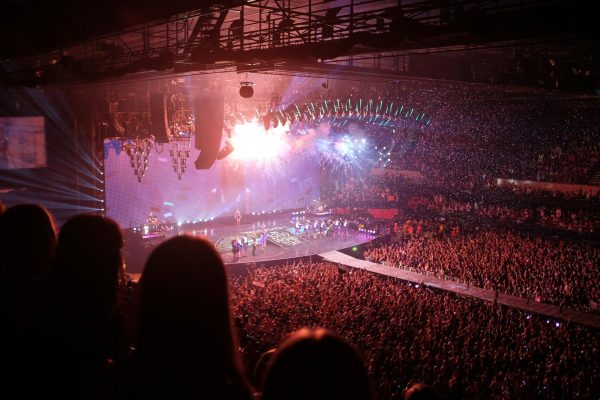- Limelight
- Limelight / Culture
- Limelight / Culture / Pop Culture
- Limelight / Digital
- Limelight / Music
- Limelight / Profiles
Get to know Madge: one of the music industries newest experimental artists
September 15, 2021
Since beginning their solo music career in 2017, Madge has been on the cutting edge of some of the most interesting movements in the underground music scene. Madge has consistently floored listeners with their unique blend of experimental electronic and pop music with a distinct DIY flavor. I had the pleasure of sitting down with one of the most interesting artists in today’s pop music climate.
Alex England: Madge, how are you?
Madge: I’m good, how are you?
AE: Oh, I’m fantastic. I know you grew up Mormon; where did you spend your childhood?
M: I grew up in Utah!
AE: What kind of music was playing around you growing up?
M: Lots of classical music and jazz music, but that was specific to my family. Church music all the time, obviously, lots of church music. I remember listening to pop music when I was in fifth grade or something and feeling kind of guilty about it because I liked it so much, you know what I mean?
AE: I feel like people who come from conservative, restrictive religions or upbringings often feel like a weight has been lifted off of their shoulders when they leave, almost as if they’re free. As a creative and especially as a queer person, did you have a similar experience?
M: It’s a work in progress. That’s something I work on and feel every day still, whether I like to or not. As much as I’d like to feel free, I think it’s something that I’m chasing. It’s a feeling that I’m hopeful that I will arrive at, and I think that leaving my religion is something that’s helped me find that feeling more, but there’s never been one moment in which I think, “Oh, thank god I’m free now.”
AE: I know you’ve been active in music for quite a while, but your first release as Madge is as recent as 2018. How did Madge as a project come about?
M: It was kind of accidental; I just wanted to do a project in which I did everything start to finish. My first single was birthed into the world in 2018, which was “Fight or Flight Club,” which I produced, wrote and mixed. In a studio setting, I felt very unempowered and very out of my league, and I thought, “This is ridiculous, I know I’m good at this, there’s got to be a way for me to be involved in all parts of the process.” Since then, Madge has evolved, and most of what I do is collaborative, mostly co-production. I still write the lyrics and melodies myself, but the origin of Madge came from the feeling of wanting to do everything from start to finish.
AE: A good portion of your music includes a lot of different textures and vocal effects that have become increasingly popular in the underground over the last few years. When did you start experimenting with those glitchy, off-kilter sounds?
M: 2017. A lot of the stuff that you hear that’s kind of recent from me are probably sounds from three or four years ago. I originally started with the vocal effects because I was really insecure about my voice, so glitching everything out, especially my vocals, was a way for me to kind of make my voice more of an instrument and more of a tool that could carry the song, rather than the song being about the sound of my voice. As far as the instrumentals sounding glitchy and weird, those are just the sounds that I like!
AE: The first song of yours that I found was “Fight or Flight Club,” and according to Spotify, that’s your most popular solo song under the Madge moniker by some distance.
M: By a lot.
AE: It’s really interesting to me, and you mentioned this earlier, that it was your first single. When you were making it, did you ever think it would gain the traction that it did?
M: No, no, no. It was literally my first song, I had never put out a solo song ever, and all of a sudden, it just got organically curated into these huge playlists. I do remember logging into my Spotify for Artists and watching the number get higher and higher, and I was like, “Wait, did I just make a song that’s turning me into an artist?” As much as I wanted that, I didn’t think it would happen.
AE: Given that your first song became as popular as it did and your following songs didn’t live up to those numbers, did you ever have any feelings of disappointment following your subsequent releases?
M: Yeah, absolutely. In hindsight, I see how I could have done things differently, but I just wanted to release everything that I had and, for better or for worse, that’s how I did it. But yeah, I can get in my head about it sometimes, but it just is what it is.
AE: “Fight or Flight Club” is very interesting because of the juxtaposition between the sugary, vibrant instrumental and lyrics that deal with physical abuse. Was this a conscious decision, or did it just end up that way?
M: I think it was a combination. Most of my lyrics and sonics are a mix of happy accidents and intention. I do love flipping the script by making a really sweet song that has really sour lyrics, so there was some intention to it, but really I just had that melody in my head, and those were the words that fit.
AE: You’ve also gained a bit of exposure with your collaborations, most notably on “Fun” with Kaskade, Mr. Tape and Brohug. I’ve always been very curious about how these songs come about. Can you give me a little insight into that?
M: So I’m from Utah, and that’s how I know those guys. Kaskade is kind of in the circle of people that I’ve interacted with. Initially, with that song, I recorded my vocals in a closet; I didn’t think it was going to become a Kaskade song. The vocals got passed around, and they liked it, and the song did really well, so I’ve since done more with that crew.
AE: One thing about your discography that really catches my eye is your covers EP … Is Just A Girl. What was your thought process while developing that project?
M: Those songs just stand out in my mind as part of my musical consciousness and are songs that I remember hearing that stuck out as not church music or classical music. I don’t even particularly love these songs, to be honest, I don’t even listen to them, but they all just kinda stick out in my mind as touchpoints to when I started listening to mainstream music.
AE: Fight or Flight Club and Ethanol were released two years apart, but from what I’m gathering, it sounds like they were recorded around the same time.
M: The sounds that I created for Ethanol were created immediately after Fight or Flight Club. A lot of the songs that you hear on Ethanol were made a long time ago. I’m sitting on some stuff right now that I’m so stoked about, but I might have to wait a year for it to come out, and I might be bored of it in a year. Sometimes I’m insecure that if I wait a year to put them out, they’ll just become a part of a bigger wave that’s going on, and I feel like that kind of happened with Ethanol, to be honest.
AE: Even within projects, your sound is incredibly diverse. Is this done with intention, or is it just something that happens naturally through experimentation?
M: Everything about Madge is an experiment, to be honest. I’m trying to decide right now with the stuff I’m making whether I want to go more pop or go more fringe, but if I make a sound that I love and think is cool, I’m okay with putting it out as Madge.
AE: Do you have a timetable for a full-length release?
M: So I have a three-song collab EP coming out in October that’s cool, and I’ve been making tons of music with some really incredible producers, and I would hope to put out a full-length album next year.
AE: Madge, it’s been a pleasure; thank you so much for talking to me.
M: For sure, thank you!
You can follow Madge on Instagram here and on Twitter here. Their newest EP XR will be released in October.

